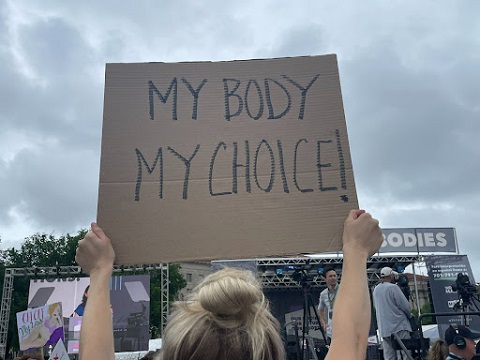Interview by Charles McCain, Street Sense
“I felt the reality of poverty,” says Martin Walker of his upbringing in Southeast DC. Although his mother worked full-time for the Federal government, paying the bills for her five children was a constant struggle. Martin was the youngest. “Electricity turned off now and then,” he remembers.
While Martin knew his father and would visit him on occasion, he wasn’t there financially. His mother had to shoulder the entire burden. It’s not an uncommon story in poor, African-American neighbourhoods in Washington DC, but it’s always a painful one to hear.

Everything was substandard—schools, housing and the most critical—health-care. At age 26 his older sister died six months into a pregnancy. This, too, is not an uncommon story for a family both poor and black in Washington, DC. Given he had four siblings, this is the only one he spoke about. It is clearly one of the most terrible events of his younger life.
In 1989, at the end of the 9th grade (aged 15), school no longer appealed to Martin and he dropped out and went to work. Odd jobs mostly. At age 19, while he couldn’t even get a credit card for bad credit, he secured full-time employment selling home improvement work over the phone. He was good at it and became the sales manager. Then onward and upward to better paying job as a mortgage loan officer during the refinancing boom some years back. But Martin found he didn’t like paperwork and that a job in mortgage refinancing involves a lot of paperwork and deceiving homeowners.
So in the year 2000 Martin went to another job back on the phones, this time in debt collection for a law firm. He spent most of his time finding the people who owed money and had not paid. After finding them, he either got the money from them or the law firm sued the person.
Martin was good at this work but got fired. Why? The law firm would not give him the time off he needed to go through a program of physical rehabilitation for his knee. They didn’t care that he had been an automobile accident and one of his knees had been smashed up in the accident. Without an income, Martin “fell behind in his bills.” By 2002 he had lost everything: “house, car, dog, girlfriend.”
Depression gripped him. His knee hurt. Martin “started using drugs for the emotional and physical pain.” And sometimes just plain boredom. In spite of his troubles, he managed to go through a commercial truck drivers course and received his Commercial Truck Driving license known as a CDL. He drove everything from dump trucks to tractor-trailers.
“I feel like the government is playing games with my life”
Life became much better until he was in an accident in 2009 and stopped driving trucks. Since his income stopped, homelessness followed. Depression gripped him again, and again he started taking street drugs to endure the pain of having his life collapse. He never imagined he would live on the streets until 2014. But that is what happened. How did he get the small amount of money he needed to live on? Panhandling. What was that like? “Dehumanising,” Martin said. And how could it not be?
Yet even in those circumstances, Martin Walker summoned the will to go back to high school and earn his diploma. He says felt “very satisfied with myself since I always felt bad that I never got it.” Finally in the summer of 2014 he started driving trucks again. While he was still homeless, he had finally gotten work again. This continued for five months until August of 2014. Then he physically lost his Commercial Drivers License—it wasn’t taken away because of his driving. He simply misplaced it. Without that license, he couldn’t drive trucks. All he needs to do to go back to work is get a new CDL to replace the one he lost. Easy. Just go to DMV of Washington DC get the replacement license.
But there was a hitch: you have to prove who you are and that you live in DC. This isn’t difficult. You have to provide the District government with your apartment lease, bills sent to that address, the best one being your utility bill. But if you are homeless, this is impossible because you don’t have an apartment lease. You don’t have a utility bill.
Being caught up in this bureaucratic nightmare is obviously distressful to Martin. He could easily get work driving trucks, support himself, and get a lease on an apartment. But he can’t do that until he gets a replacement for his Commercial Drivers License—which he cannot get because he doesn’t have a lease on an apartment in the District of Columbia—which he can’t get because he doesn’t have the money.
Martin finally got everything together he needed with the Proof of Residency Form, which would allow him to get the replacement license he needs. However, upon arriving at the DMV Martin was told they stopped accepting that form three weeks prior.
“I feel like the District government is playing games with my life and literally stripped me of my livelihood.” Martin said. “Every time I achieve one goal they set for me, they set a new goal.” He concluded our interview by saying he hopes Muriel Bowser reads this and can help him get a replacement CDL.
Courtesy of Street Sense @StreetSensedc. Image Courtesy of Jane Cave
We publish a profile of one of our vendors from across our network every Wednesday. Read more of their stories here.




















